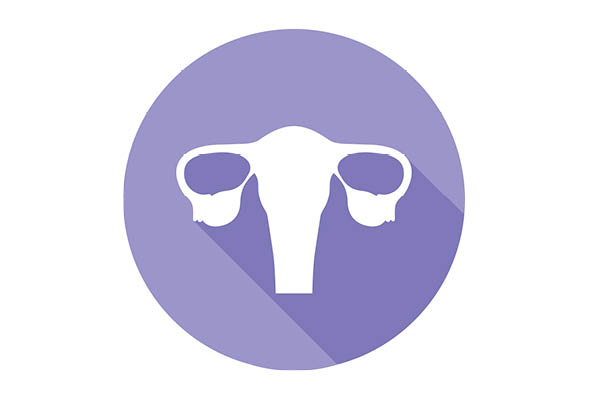If you have made the difficult decision to end a pregnancy, ensuring you have access to the best medical care is essential. Termination can be emotionally draining enough, without having to worry about care. For pregnancies of up to 10 weeks, medical abortion is frequently the treatment of choice for both patients and doctors in the UK. Indeed in 2021 87% of all terminations in England and Wales were medical abortions. If you are considering it, you may be wondering: What is the success rate of medical abortion? How does the process work? Let’s break it down.
What is medical abortion?
Medical abortion terminates a pregnancy through hormone-based medications which prompt the reproductive system to miscarry. It is a process very similar to an early spontaneous miscarriage – with the crucial difference being that you can prepare a nurturing environment at home for medical abortion.
You take two pills at two distinct times. The first pill (named mifepristone) obstructs the vital pregnancy hormone progesterone, which stops the pregnancy from developing and causes it to break away from the womb’s wall. The second pill (misoprostol) prompts the womb to contract, which induces natural miscarriage without the need for surgery. Since the success rate of medical abortion is very good, and the procedure is non-invasive, women frequently choose medical abortion over surgical abortion.
Traditionally medical abortion is conducted at a clinic, with in-person consultation to screen you and administer the tablets. But recent changes to UK legislation have enabled women to opt for medical abortion pills by post, meaning you can have the treatment fully at home, should you wish.
What is the success rate of early medical abortion?
Women frequently ask: What is the success rate of medical abortion? Is it the right option for me? Understandably, you want to know that the procedure is considerably safe and effective. Thankfully the success rate of medical abortion is very good – around 96%. This means that in about 4 cases out of 100 the pregnancy does not fully pass and a woman may need an additional procedure to complete the process.
This is where choice of clinic comes in, because some centres don’t have the resources to complete the abortion process if the medication does not fully clear the pregnancy. Thankfully, here at The Gynae Centre, we not only have the best scanning equipment and 24 hour aftercare advice available, in the unlikely event of an incomplete medical abortion, we are fully equipped and on hand to conduct a surgical procedure in the clinic to complete the process safely and effectively – without waiting lists.
How does the success rate of medical abortion compare to surgical abortion?
Surgical abortion is slightly more statistically successful than medical abortion – around 98% compared to around 96% respectively. So why is medical abortion the procedure of choice for doctors and patients in early pregnancy?
“Early medical abortion is non-surgical, non-invasive, and doesn’t require anaesthesia. It also enables a woman to undergo a difficult process that can be emotionally as well as physically draining, in the comfort of her own home. This is why so many women opt for it, and doctors tend to prefer it,” says Dr Albert Aka, Consultant Gynaecologist at The Gynae Centre and one of the UK’s leading women’s health doctors.
What is the success rate of medical abortion pills by post?
With medical abortion pills by post, the medications arrive via the mail and a woman takes them at home at the directed times. More and more women are opting for this method – in fact in 2021 medical abortion pills by post accounted for 52% of terminations. Thankfully, the success rate of medical abortion pills by post is around 96%.
Dr Aka says: “Medical abortion pills by post are generally very safe and successful and the convenience has been helpful for so many working women that may struggle to access clinics in person, yes. However, we must sound a note of caution. Whether in-person or via the phone, a proper clinic must be accessed. We have to say this because there are all kinds of random websites nowadays selling medical abortion pills via a short form and a few clicks – no proper screening, no aftercare – it isn’t safe and it just isn’t worth the risk.”
The key thing is to ensure that you get medical abortion pills via a reputable clinic that delivers proper screening and aftercare, for a safe and effective procedure. Here at The Gynae Centre, all patients who opt for medical abortion pills by post are screened by one of our compassionate Consultant Gynaecologists (not a nurse) who will deliver a thorough telephone consultation to go over your medical history, carefully making sure medical abortion is safe for you. After this, the tablets are sent via the mail with clear instructions for you to take them at allotted times. In addition, 24-hour telephone aftercare support is available for up to 4 weeks after your abortion – for any questions or concerns whatsoever.
What happens if a medical abortion is unsuccessful?
In the unlikely event that an early medical abortion is unsuccessful, a patient will require a surgical procedure to complete the process. Here at The Gynae Centre, we would deliver manual vacuum aspiration, a procedure in which gentle suction is delivered through a handheld device inserted in the entrance to the womb through the cervix. It can be done under local anaesthetic (with sedation if a patient wishes to be asleep) – no general anaesthetic is required and patients are able to go home the same day.
How safe is medical abortion? Are there any risks and side effects and what about aftercare?
Abortion is a very safe treatment with scant associated risks and side effects. There is no evidence at all to indicate that an uncomplicated termination damages future fertility or general health. In fact, as The Royal College of Obstetricians and Gynaecologists state, providing it is conducted according to best practice, an abortion (either medical or surgical) is statistically safer than proceeding through a pregnancy and birth process. In addition, medical abortion is non-invasive and doesn’t involve anaesthetic.
Of course, every medical procedure has some associated risks and side effects – medical abortion is no exception. When passing the pregnancy, you will likely feel some pain, which most women report is worse than a heavy period – and you are advised to take mild painkillers such as paracetamol and ibuprofen, and rest at home for at least that day. About 1 in 10 women experience nausea, diarrhoea and vomiting. In the proceeding few days, you will probably have some cramps (similar to menstrual pain) but this will ease off as the days go by. Mild painkillers and hot water bottles are advisable. You should use pads for the bleeding – not tampons.
With medical abortion (as with surgical abortion) there is a small risk of needing an additional procedure to finish the process. Other very small risks linked to medical abortion include uterine or pelvic infection, haemorrhage or unrecognised ectopic pregnancy.
At The Gynae Centre, we take the utmost care in screening and aftercare. Whether you opt for the procedure in person or medical abortion pills by post, you will be screened by a Consultant Gynaecologist (not a nurse) and have access to a 24 hour aftercare line for four weeks post-abortion if you need any support or assistance. Three weeks after the procedure we will provide a special pregnancy test to check it has been successful. In the unlikely event of a medical abortion being unsuccessful, we are fully equipped and on hand to complete the process in the clinic swiftly and safely.
Through our lengthy experience in supporting women through this time, we do everything possible to make the process as smooth as possible – and our expertise and technology is second to none. To find out how we can help, call us on 020 7580 8090 or book online.






